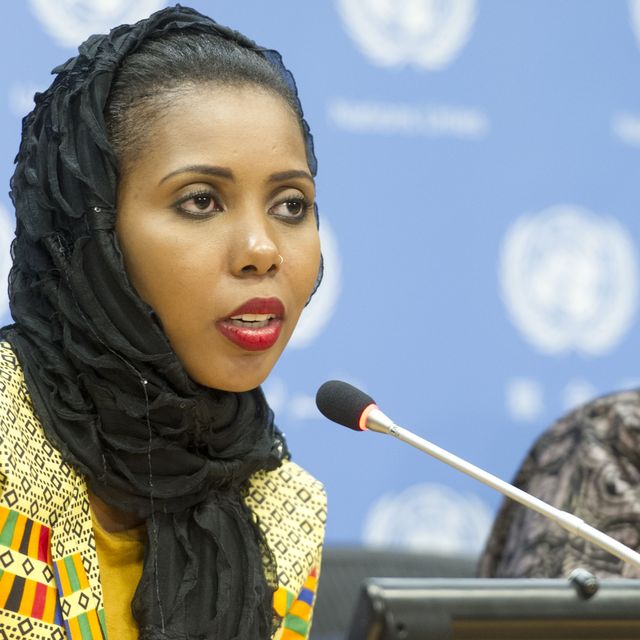Abandoning Female Genital Mutilation

The 6th of February was designated the International Day of Zero Tolerance for Female Genital Mutilation (FGM) in 2012 with an aim to raise further awareness on the practice of FGM and the harm it causes. But the UN’s goal to eradicate FGM has a much longer history, having been taken up at the Beijing Platform for Action 2000 as a violation of human rights. The SDG 5, which includes the aim to eliminate the practice of FGM by 2030, has now entered its final decade. Although there is still plenty of work to be done to achieve this goal, there has been a significant decline in the prevalence of FGM since 2000. Based on data from 30 countries where the practice is well-established, the UN has reported a decline in its prevalence by one quarter over the last two decades. It has also been shown that the percentage of both girls/women and boys/men who oppose the continuation of FGM is relatively high in many of these countries. This means that attitudes can be seen to be changing. However, current progress is insufficient to keep up with an increasing population growth. UNICEF states that “if trends continue, the number of girls and women undergoing FGM will rise significantly over the next 15 years”.
What is FGM and who does it affect?
FGM is a harmful practice that is defined as altering or injuring a female’s genitalia for non-medical reasons. This often means removing all or part of the clitoris or other genitalia. In its most extreme form, it can also involve removing both labia and/or sewing together the vulva.
According to available data, FGM is, currently, most prevalent in parts of Africa and the Middle East, but it is not restricted to these regions. For example, in Ethiopia, although the practice has declined over the past twenty years, from 80% in 2000, down to 65% today, it remains widespread in certain regions, like the Afar region, where rates of FGM are currently 91%. FGM affects girls and women of all ages, as not only the practice itself is harmful but the consequences of it remain with women throughout their lives, causing horrendous short- and long-term physical and mental issues. FGM is practiced on girls of all ages, especially those between 0 and 15 years. For example, in 2016, it was reported that, in Yemen, 85% of girls experienced FGM within the first week of their life.
Origins of FGM
Although the focus on FGM is currently based around countries in Africa and the Middle East where the practice is especially prevalent, according to the UNFPA, FGM has not always been a problem specific to these regions. Clitoridectomy was practiced, as recent as the 1950s, “in Western Europe and the United States to treat perceived ailments including hysteria, epilepsy, mental disorders, masturbation, nymphomania and melancholia”. And it continues to be practiced in these areas on a small scale within communities that have migrated from areas where it is currently more prevalent. It is a practice that has been followed by many different peoples and societies throughout history and across continents. The UNFPA states that the origins of the practice are unknown, but it is believed to pre-date the rise of Christianity, Judaism and Islam. Although FGM is not endorsed in any religion or religious text, religious doctrine is nonetheless often used to justify it.
Achievement in eradicating FGM
Since 2008, the UNFPA and UNICEF have worked together in a Joint Programme, with an aim to eliminate FGM by 2030. The programme began with the implementation of Phase I, which focused on a culturally sensitive, human rights-based approach in fifteen African countries and is now on Phase III, which looks to “shift social norms in affected communities while working with governments to put in place viable national response systems”. These social norms are a manifestation of deeply entrenched gender inequality. The attempt to shift them through collective action and community declarations of FGM abandonment is an important methodology not only for the eradication of FGM but also the eradication of gender inequality in general. In certain communities, as those who do not support FGM are often condemned, harassed or ostracised, gaining support from the wider community to abandon FGM is incredibly important in its eradication.
Since it began in 2008, the partnership between the UNFPA and UNICEF has seen significant achievements. More than 3.2 million girls and women supported by the Joint Programme have benefited from FGM-related protection and care services, both governmental and non-governmental. These services provide relevant information and measures on how to prevent FGM, protect girls from it, and care for girls and women who have already experienced it. Thirteen countries supported by the Joint Programme have established legal frameworks for banning FGM – including, in 2015, Nigeria and The Gambia – and thirteen countries have established national budget lines to address it. Not only does the Joint Programme work towards the abandonment of FGM, it acknowledges the importance of continuing to provide care for its consequences.
Current focus of the UN
The current focus of the UN continues to be on countries where FGM is most prevalent. At the moment, this involves seventeen countries in Africa and the Middle East. Another current focus is mobilising youth in the abandonment of FGM, with this year’s theme for the International Day of Zero Tolerance for Female Genital Mutilation being Unleashing Youth Power. An aim to engage whole communities must, of course, include young people. And as the population grows, especially in areas where FGM is prevalent, investing in young people is indispensable to the UN’s goal of eradication by 2030. If attitudes towards FGM can be changed at an early age then social norms will be more easily shifted and social pressure will lose its power. Investing in young people mostly involves education that allows the discourse around FGM to change – fostering the understanding that FGM is not only unnecessary but also incredibly harmful. It is important to make sure that adequate information on FGM is available worldwide for people of all ages. This should include shared experiences of girls and women who have undergone FGM in order to create a space for empathy, care, conversation and solutions – and in order to end the stigma surrounding FGM and the social pressure to engage in it.
Teri Shardlow



